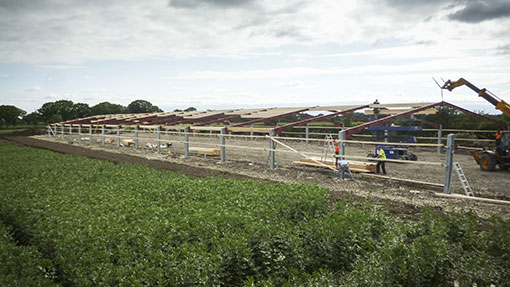NFU mobilises to support broiler shed plans

The NFU has thrown its weight behind poultry farmers who are planning for expansion, but facing fierce opposition from groups against intensive livestock rearing.
Campaigns against farmers are becoming increasingly sophisticated, with opponents able to reach an audience beyond the local area using the internet.
One Herefordshire broiler grower met with a barrage of criticism when he applied to erect four poultry sheds. Alongside some objections from local residents and coverage in local media, paid for ads were taken out in newspapers, objecting to the development and pointing to a website called “broilingmad”.
The website accuses the poultry industry of “building it’s huge, ugly, industrial sheds in the open countryside”. “Because they aren’t charged business rates, council tax or developer fees, we subsidise this brutal industry,” it suggests. “As taxpayers, we pay for the roads its heavy lorries travel on, for the Environment Agency to police it, and we pay to clean up its pollution.”
The site also claims that humans are dying because of the antibiotics used in poultry production, and suggests chickens never see daylight and don’t breathe fresh air.
See also: Internet petition launched against Derbyshire poultry shed plans
But the NFU has branded the website as “inflammatory and wholly inaccurate” and has written to Herefordshire Council in support of the application.
And in a press release to local media, Gary Ford, chief poultry adviser for the NFU, said that poultrymeat consumption in the UK is growing, and it is vital that British farmers are able to meet this demand.
“These new sheds in Herefordshire will enable the farmer to expand the production of freshpoultry meat for the UK market and will also benefit the rural economy,” he said.
“In terms of local benefits, such sites do create local employment and contribute to retaining jobs in areas where employment and opportunities are vitally important.
“In addition, local agricultural businesses will benefit as a percentage of the wheat that will be fed to the birds will be sourced from local farms.”
The application has to date received 159 representations in total, most objecting to the development.
